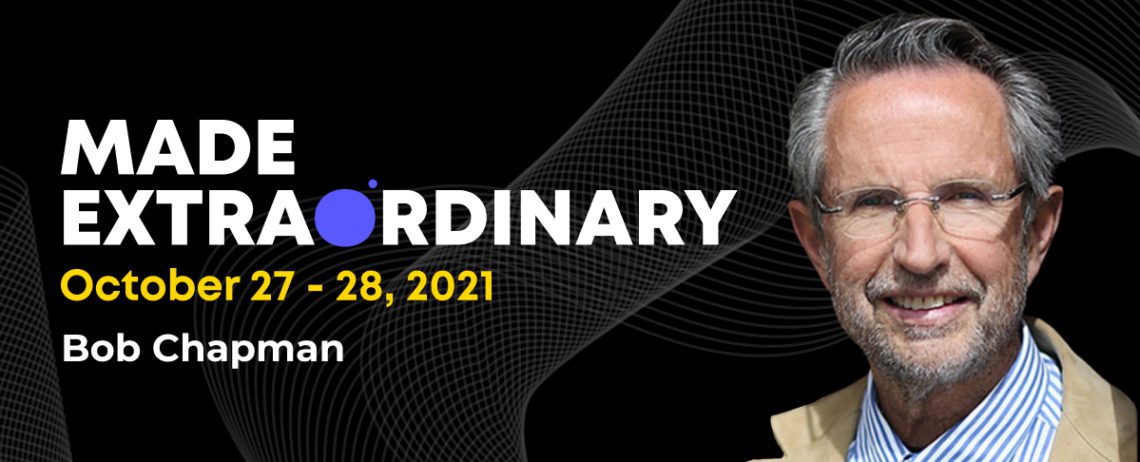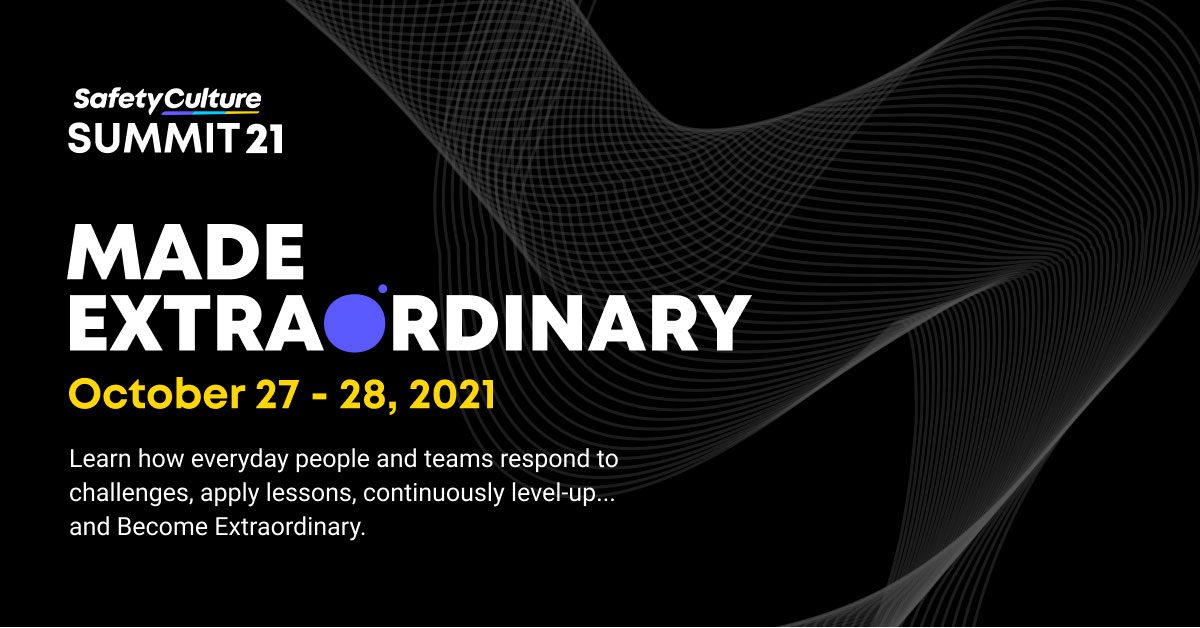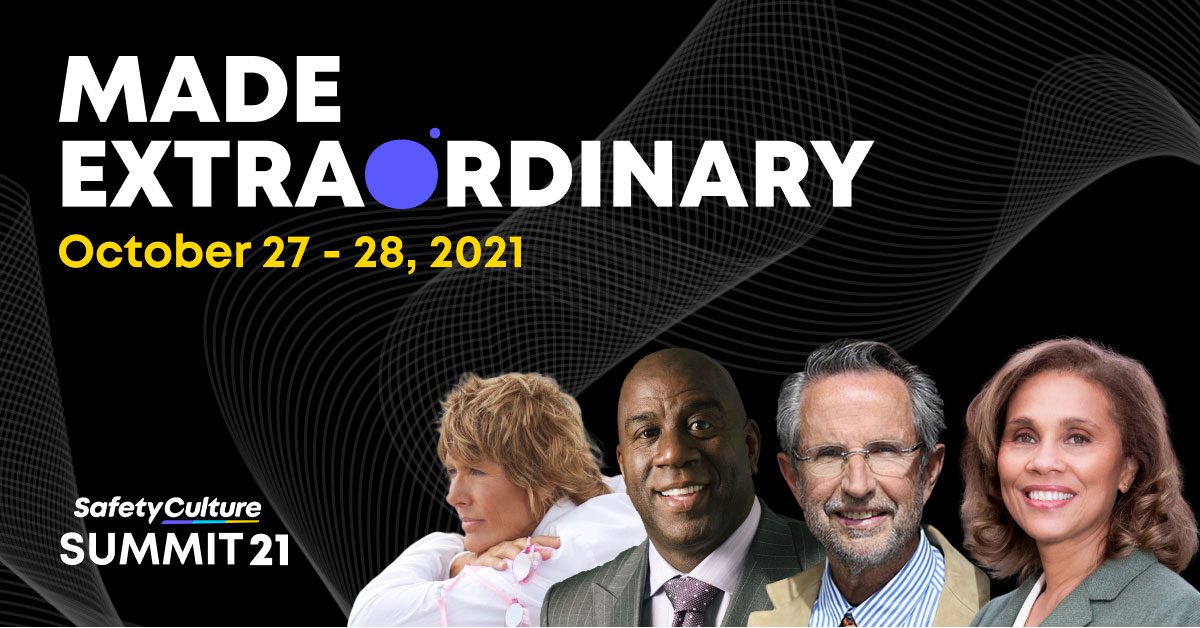Truly Human Leadership: 5 Tips from Bob Chapman to Help You Become an Extraordinary Leader
SafetyCulture Summit 2021: Made Extraordinary | By | 5 Aug 2021 | 4 minute read

Behind every great leader is an extraordinary team of people. Teamwork and effective leadership has never been more critical in the climate of the pandemic, with COVID-19 forcing us to face the unknown, learn together, and be masters of adaptation.
Few have done it better than Bob Chapman, recently named the #3 CEO in the world by an Inc. magazine article. Over the past two decades, he’s moved away from traditional management practices to hone a people-first approach. Forget about quarterly goals, forget about egos, forget about ROI. Focus on the people. He calls it Truly Human Leadership – where employees feel valued, cared for, and like they’re an integral part of the company’s purpose.
In 1975, Bob took over the reins of a struggling bottle washer business at age 30, and over 40 years, transformed it into a company of 12 business units with 11,000 employees. It is now a 2.5 billion dollar global business. He shared his experiences and philosophy on True Human Leadership at the SafetyCulture Summit 2021: Made Extraordinary, a free 2-day event set to inspire working teams around the world.

Get a glimpse of the structure behind success by reading Bob’s five leadership tips that will show you how to become a leader — and an extraordinary one at that.
Tip 1. Be a steward, be a leader
We all want to feel valued in the workplace and leave with a sense of fulfillment at the end of the day. To Bob Chapman, the best leaders genuinely care about each person for who they are. This genuineness, or Truly Human Leadership as Bob calls it in his book Everybody Matters, can make work more meaningful for each individual. It can consequently, have the power to create a more caring world. True leadership to Bob Chapman is about being a steward of your team member’s lives and cultivating a culture for each person’s unique motivations, skills, and challenges to grow and develop. It is the leaders that can make a dramatic impact on people’s lives. All leaders have an obligation to be stewards to foster all humans to be everything they’re capable of and beyond. Leaders set the culture; this is why leadership matters.
Tip 2. Listen with empathy
Our world is noisier than ever. Our days and weeks are filled with interruptions and an endless cycle of notifications that distract and compete for our attention. There’s much talking happening, but not a whole lot of listening. Why is listening so essential? More than ever, people want to feel valued; people want to be understood and heard. Bob says that empathetic listening, which is the basis of being a good leader, is about putting yourself into their shoes and listening. Show genuine interest to the people around you. If you do this, you’ll realize that listening can make each person feel the presence of a leader who can help create a better future. When’s the last time you truly listened?
Tip 3. Recognize and celebrate the goodness in people
Everyone has unique gifts and talents. Truly Human Leadership is about discovering these special gifts and skills and nurturing them into something bigger than themselves. Daily acts such as a meaningful word or note of appreciation from a leader can make employees feel considered: that they matter. Rather than an over-the-top celebration, small daily acts to remind employees of their efforts and progress can create an environment where people feel cared for. In the end, we’re social animals that respond to the environment – so creating a caring environment where our abilities are celebrated can encourage people to return home and be good stewards in their personal lives too.
Tip 4. Treat people like family
When you’re in a leadership position, Bob says that it is, in fact, a privilege to lead. Like having somebody’s precious child placed in your care, the way you interact and treat those people will affect their health, familial relations, and how they behave in that community. So, he has a simple rule. Treat those in your span of care as a privilege, like family, and no less than you would want your child (or someone you genuinely care about) treated.
Tip 5. Success lies in the way you touch the lives of others
Both in business and on a personal level, the metrics of success are different for everyone. Companies typically keep a finger on the pulse by reporting on profits, KPIs, and ROIs, but for Bob Chapman, Truly Human Leadership is about pivoting the focus to truly caring for every person. The approach should be people-centric – focus on building great people who can come together and share their gifts. Together with an abundance mindset, an abundance of patience, love, hope, and opportunity, people can do extraordinary things.

For more lessons in extraordinary leadership and teamwork, look no further than our global summit, Made Extraordinary. This is your launchpad to level up. Watch the reply for FREE today.
About SafetyCulture Summit 2021: Made Extraordinary
Made Extraordinary brings together leaders, trailblazers and experts for two days of inspiration, industry insights, keynote sessions, and professional development. Learn how everyday teams and organizations can achieve extraordinary outcomes through great teamwork. Join Made Extraordinary physically at The Cosmopolitan of Las Vegas, stream live from anywhere in the world, and catch up on demand in the weeks following the event.
Important Notice
The information contained in this article is general in nature and you should consider whether the information is appropriate to your specific needs. Legal and other matters referred to in this article are based on our interpretation of laws existing at the time and should not be relied on in place of professional advice. We are not responsible for the content of any site owned by a third party that may be linked to this article. SafetyCulture disclaims all liability (except for any liability which by law cannot be excluded) for any error, inaccuracy, or omission from the information contained in this article, any site linked to this article, and any loss or damage suffered by any person directly or indirectly through relying on this information.





